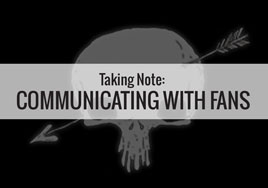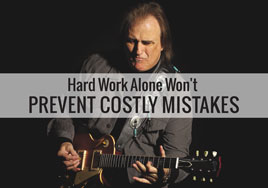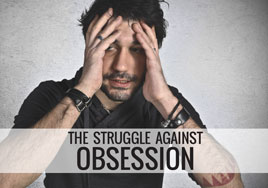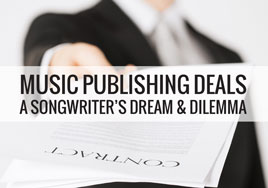Making Money With Music
By Estimated reading time: 7 minutesThe Business of Music
If you are booking paying gigs at all, you at least have a toe in the business side of music. That is, you are performing music in exchange for money. Now, depending on your goals, you may not be making as much money as you hoped. To move forward, there are a few things you need do to get where you want to go.
1. Make a realistic, big-picture goal
Do you know where you want to end up? If the answer is in a penthouse, rolling in piles of money, while your agent turns down gigs because your worldwide tour is sold out, you may need to take a hard look at what you’re doing to achieve that dream. Most of the successful bands and artists you’ve heard of today had a long, hard road to success. They worked grueling hours. They played every thankless gig they could get their hands on. They subjected themselves to rejection in an effort to get their name out to agents, labels, and fans. Most success stories are less a random discovery of untapped musical talent and are more stories of struggle, frustration, and just plain stubborn determination. However, each successful artist would probably tell you that the thing that kept him or her going was an unceasing desire to reach a particular milestone. So, determine where you want to go. This will help you create a roadmap to reach your desired destination.
2. Take an honest inventory of your strengths and weaknesses
With a road map in mind, you now need to look at places where you naturally shine, and the areas in which you could use some improvement. Maybe you kill at rhythm guitar, but could use some practice in lead parts. You might be an amazing songwriter, but need to look into some voice lessons or, at least, voice care. Maybe you need to leave the singing up to another member of the band or put in time on learning how to add loops to your sound. Now is the time to figure out the strengths on which you can capitalize and the weaknesses holding you back. Musicianship is not the only item to take into account. Is there someone on your team who is a natural spokesperson? Use that. Do you have someone with a penchant for entrepreneurship? There’s your business manager. Maybe there’s not a business bone in any of the members of your team. That’s ok, but recognize that as a deficit and work to figure out a way to find the help you need. Which brings me to our next step…
3. It’s okay to admit you need help (and you do)
Whether you are a solo artist or a band, chances are you don’t have your music career all figured out, or you wouldn’t be reading this article. Just a guess. No problem. There’s help out there for you, once you identify the areas where you need it. In step two, did you find that your songwriting needs help? Perfect! There are entire communities of songwriters just waiting for someone to use their songs. These people are often times willing to collaborate with others (you) to create something more tailored to your sound. Can’t find anybody in your town? Through the wonder of the Internet proximity is no longer an issue. If you feel you have untapped potential in the area that is currently (i.e. your songwriting is not quite where you want it) keep honing your skill. The really good songwriters got good by failing a lot first.
Are there bands in your area whose sound you like? Or maybe you appreciate their approach to stage presence. Or maybe you just wonder how to get gigs like the one they’re playing. It might not be a bad idea to find a mentor in the accessible local bands you like. Email them and invite them to have coffee or a drink. Find out if you can pick their brain. If you hit it off plan a jam session. Write together. Maybe you’ll develop a networking relationship with them and who knows where that could lead. More connections? At the end of the day you need people who have gone before you – people with more experience. Seek them out. One day you may be the one giving highly coveted advice to a newbie band.
4. Define your sound
You’re versatile. You’re a mystery. You can’t be pinned down, because you’re universal. Genre-less. Great. Here’s the potential issue. People like categories. Sorry. So, it’s ok if you’re creating a newish sound like Soul/Pop. But, if you’re so ethereal or all-over-the-map that only major hallucinogens enable to connect with your music, you may want to reconsider your approach. Establish the strength of your style’s sound and stick to it. When you have established a solid fan base and have met some of your milestones of success, you can experiment a little. When you’re nationally recognized, multimillionaire you can redefine yourself and take a completely new direction, if you dare.
5. Work hard (Sorry.)
You may have already guessed or even experienced that this is a necessary step. This is the step that can waylay or even remove many talented people from the pursuit of their musical goals. It’s hard out there for a band. The problem is there’s this idea out there that if you want it enough you’ll achieve success. The problem countless people want to achieve their musical dreams and, unfortunately, it won’t happen for everyone. It also takes a measure of humility, especially if you are a legend in your own mind, to play kids birthday or smoky bars or tour (and live) in a cramped van. You have to account for small beginnings – even if you’ve won some battle of the bands or had a cancelled record deal. Whether it’s practicing or networking or gigging (and it’s all of those things) there will be many hours of work. The bottom line is this: do you want it enough to work for it?
6. Create a workable business plan
Having said all that I’ve said about step five, keep this in mind… hard work can be coupled with efficiency. Here’s what I mean. You, the band or artist, have a responsibility to yourself and anyone who wants to keep hearing your music to define what success looks like for you. If music is your main source of income then eating, paying rent, and affording your lifestyle is the very basic measure of success. If you’re a grown person mooching off the people you know because music isn’t paying the bills, you need a new strategy. Are you spending more on gear then your gigs are paying? Did you order a thousand t-shirts when your fan mailing list consists of 87 people? Hoping for success and working toward success are two different things.
If music isn’t paying the bills you need to sit down and figure out why. If you have inroads in the local music scene, you probably have a good idea how much money each venue will pay. Instead of working on your band’s awesome logo, you need to play as much as possible. At those gigs, get people to sign-up for your newsletter. This will allow you to track who has an interest in your music. Communicate with these folks. Tell them when and where you’re playing and give them a reason to bring their friends (free bumper stickers or EPs or make a deal with the venue that your fans get ½ off their first drinks). Have your mailing list sign up at every gig and connect with the people in the audience, both on and off stage. To fund an album, do a PledgeMusic campaign and raise most of your capital before heading into the studio. If you do have an album, be aware that iTunes takes a good percentage of the song sale without allowing you a way to track who bought it. Consider instead having your own online storefront and selling your albums there. Or sell through Amazon. Sure, be on iTunes, but don’t allow that to be your only outlet. And, do everything you can to drive traffic to your storefront. It’s ok to be smart about your approach and think these things out before charging headlong into the musical abyss. Have a plan. You are a musician, but until you hire these people out you are also your own marketer, agent, salesperson, etc. If you don’t know how to fulfill those roles, see step three.
Now get out there and make some music!
Leave a comment
...Keep Reading

























